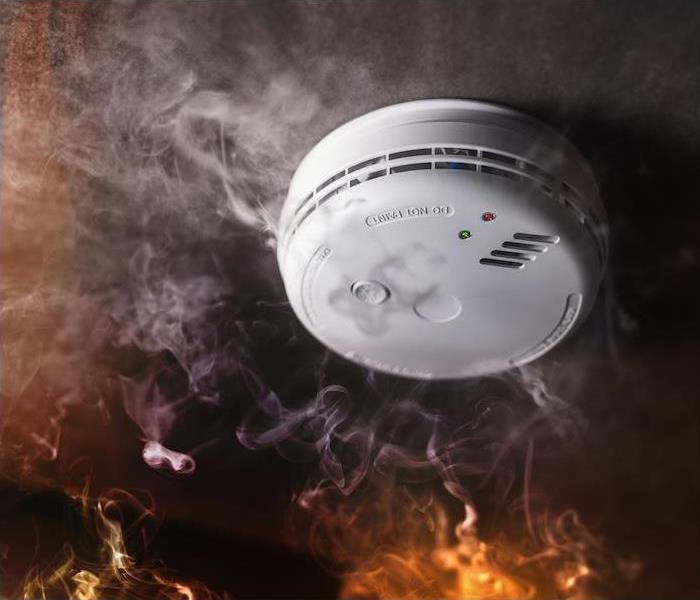The Sounds of Fire Safety
9/20/2021 (Permalink)
 If you should experience a fire in your home, SERVPRO of Fayette/S. Fulton is here to help recover and restore.
If you should experience a fire in your home, SERVPRO of Fayette/S. Fulton is here to help recover and restore.
We’re bombarded by sounds at almost every moment of the day. Some we learn to ignore, some we discount as noise and some—babies crying and police sirens, for example—we prioritize as important and urgent.
A few of these sounds of urgency come from fire detection devices. When smoke alarms or carbon monoxide detectors make noises of any kind, it’s crucial to pay attention and take action. Knowing the sounds of safety could play a crucial role in keeping your home and family safe.
Today, let’s cover all the chirps and beeps of your household detection devices, so you know what to be listening for and what to do when you hear it.
Smoke Alarm Sounds
Three beeps. If your smoke alarm is emitting a continuous pattern of three loud beeps, that means smoke and/or fire have been detected. Don’t wait, and don’t hesitate—get out of the house and call 9-1-1, and let your local responders figure out the source of the issue and deal with any fire inside.
Smoke alarms can be triggered by steam, dirt or even bugs, but it’s safer for you to get out than to put yourself in danger trying to be sure.
Chirping. If your alarm is making a short “chirp” sound every 30 to 60 seconds, your battery is low and needs replacement. To avoid this noise, change your batteries at least once a year, but the NFPA recommends doing it whenever you change your clocks for Daylight Saving Time.
If your alarm continues to chirp after you’ve changed its batteries, check to ensure that the batteries are installed in the right direction. If they are, your smoke detector may have reached the end of its life. Detectors should be replaced every 10 years.
Carbon Monoxide (CO) Alarm Sounds
Four beeps. In the same way your smoke alarm beeps three times to indicate danger, your CO alarm will beep four times if a leak is detected. Get out, stay out and call 9-1-1. You won’t see anything indicating the presence of carbon monoxide, but your alarm knows when it senses it.
Chirping. Change your batteries if your CO alarm is chirping every 30 to 60 seconds. If beeping continues, check to ensure that your batteries are installed correctly. If chirping still persists, replace your unit.
End-of-life sounds. Different manufacturers use different sounds to indicate that a CO alarm has reached the end of its life. If your alarm is making a sound you don’t recognize, consult your user guide or the manufacturer’s website.
If you should experience a fire in your home, we’re here to help recover and restore your house and belongings. Contact us today to see how we can help.




 24/7 Emergency Service
24/7 Emergency Service